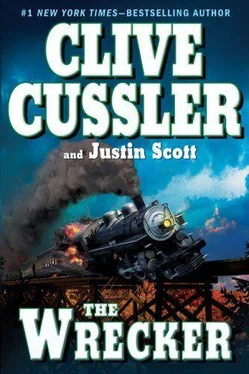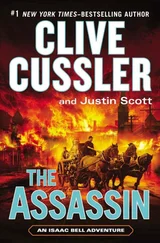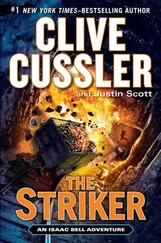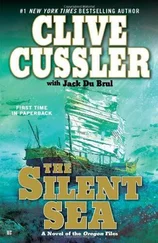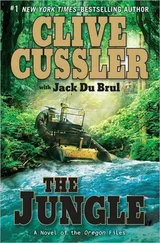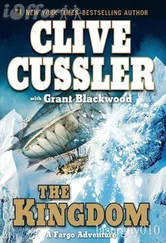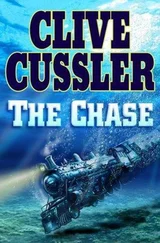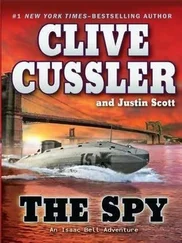Instantly, the calls of the skiers and the drone of the rope-tow engine ceased. The snow fell silently on wool clothing. It was so quiet that they could hear the hiss of the metal-edged wood cutting the powdery surface, their own breath, and their heartbeats. Hans led the way down the slope for a mile, and they swept into a shelter formed by an outcropping of rock. From within it, he pulled out a lightweight improvised sled.
It had been fashioned out of a Robertson stretcher, a litter made of ash and beech and canvas designed to wrap tightly around a wounded sailor to immobilize him so he could be carried through a ship’s steep and narrow companionways. The stretcher was lashed to a pair of skis, and Hans pulled it with a rope tied around his waist. That rope was twined around a long ski pole he used as a brake on descent. He led the way another mile across a shallower slope. At the foot of a steep rise, they attached sealskins to their skis. The nap of the fur facing backward gave them traction to climb.
The snow came on thick now. Here was where Hans earned his gold francs. The American could follow a compass as well as the next man. But no compass could guarantee he wouldn’t drift off course, pummeled by the wind, disoriented by a crazy hodgepodge of steep angles. But Hans Grandzau, who had skied these mountains since he was a boy, could pinpoint his location by the slant of a particular slope and how that slant shaped the bite of the wind.
They climbed for miles and skied downhill again, and climbed again. Often, they had to stop to rest or clear the sealskins of ice. It was nearly dark when the snow parted suddenly at the top of a ridge. Across one last valley, the American saw a single lighted window in the castle. “Give me the sled,” he said. “I’ll take it from here.”
The German guide heard the steel in his voice. There was no arguing. Hans passed him the sled rope, shook his hand, wished him luck, and cut a curving track into the dark, heading for the village somewhere far below.
The American headed for the light.
THE PROLETARIAT’S ARTILLERY

SEPTEMBER 21, 1907
CASCADE RANGE, OREGON
THE RAILROAD DICK WATCHING THE NIGHT SHIFT TROOP INTO the jagged mouth of the tunnel wondered how much work the Southern Pacific Company would get out of a one-eyed, hard-rock miner limping on a stiff leg. His bib overalls and flannel shirt were thread-bare, his boots worn thin as paper. The brim of his battered felt slouch hat drooped low as a circus clown‘s, and the poor jigger’s steel hammer trailed from his glove as if it was too heavy to lift. Something was fishy.
The rail cop was a drinking man, his face so bloated by rotgut that his eyes appeared lost in his cheeks. But they were sharp eyes, miraculously alive with hope and laughter-considering that he had fallen so low he was working for the most despised police force in the country-and still alert. He stepped forward, on the verge of investigating. But just then a powerful young fellow, a fresh-faced galoot straight off the farm, took the old miner’s hammer and carried it for him. That act of kindness conspired with the limp and the eye patch to make the first man appear much older than he was, and harmless. Which he was not.
Ahead were two holes in the side of the mountain, the main rail tunnel and, nearby, a smaller “pioneer” tunnel “holed through” first to explore the route, draw fresh air, and drain water. Both were rimmed with timberwork rock sheds to keep the mountainside from falling down on the men and dump cars trundling in and out.
The day shift was staggering out, exhausted men heading for the work train that would take them back to the cookhouse in the camp. A locomotive puffed alongside, hauling cars heaped with crossties. There were freight wagons drawn by ten-mule teams, handcars scuttling along light track, and clouds and clouds of dust. The site was remote, two days of rough, roundabout train travel from San Francisco. But it was not isolated.
Telegraph lines advancing on rickety poles connected Wall Street to the very mouth of the tunnel. They carried grim reports of the financial panic shaking New York three thousand miles away. Eastern bankers, the railroad’s paymasters, were frightened. The old man knew that the wires crackled with conflicting demands. Speed up construction of the Cascades Cutoff, a vital express line between San Francisco and the north. Or shut it down.
Just outside the tunnel mouth, the old man stopped to look up at the mountain with his good eye. The ramparts of the Cascade Range glowed red in the setting sun. He gazed at them as if he wanted to remember what the world looked like before the dark tunnel swallowed him deep into the stone. Jostled by the men behind, he rubbed his eye patch, as if uneasily recalling the moment of searing loss. His touch opened a pinhole for his second eye, which was even sharper than the first. The railway detective, who looked a cut above the ordinary slow-witted cinder dick, was still watching him mistrustfully.
The miner was a man with immense reserves of cold nerve. He had the guts to stand his ground, the bloodless effrontery to throw off suspicion by acting unafraid. Ignoring the workmen shoving past him, he peered about as if suddenly spellbound by the rousing spectacle of a new railroad pushing through the mountains.
He did, in fact, marvel at the endeavor. The entire enterprise, which synchronized the labor of thousands, rested on a simple structure at his feet. Two steel rails were spiked four feet eight and a half inches apart to wooden crossties. The ties were firmly fixed in a bed of crushed-stone ballast. The combination formed a strong cradle that could support hundred-ton locomotives thundering along at a mile a minute. Repeated every mile-twenty-seven hundred ties, three hundred fifty-two lengths of rail, sixty kegs of spikes-it made a smooth, near-frictionless road, a steel highway that could run forever. The rails soared over the rugged land, clinging to narrow cuts etched into the sheer sides of near-vertical slopes, jumping ravines on bristling trestles, tunneling in and out of cliffs.
But this miracle of modern engineering and painstaking management was still dwarfed, even mocked, by the mountains. And no one knew better than he how fragile it all was.
He glanced at the cop, who had turned his attention elsewhere.
The night-shift crew vanished into the rough-hewn bore. Water gurgled at their feet as they tramped through endless archways of timber shoring. The limping man held back, accompanied by the big fellow carrying his hammer. They stopped at a side tunnel a hundred yards in and doused their acetylene lamps. Alone in the dark, they watched the others’ lamps flicker away into the distance. Then they felt their own way through the side tunnel, through twenty feet of stone, into the parallel pioneer tunnel. It was narrow, cut rougher than the main bore, the ceiling dropping low here and there. They crouched and pressed ahead, deeper into the mountain, relighting their lamps once no one could see.
The old man limped more quickly now, playing his light on the side wall. Suddenly, he stopped and passed his hand over a jagged seam in the stone. The young man watched him and wondered, not for the first time, what kept him fighting for the cause when most men as crippled as he would spend their time in a rocking chair. But a man could get hurt asking too many questions in the hobo jungles, so he kept his wonderings to himself.
“Drill here.”
The old man revealed only enough to inspire the confidence of the volunteers he recruited. The farm boy carrying the hammer thought he was helping a shingle weaver down from Puget Sound, where the union had called a general strike that completely tied up the cedar-shingle industry until the bloodsucking manufacturers beat them with scab labor. Just the answer a budding anarchist longed to hear.
Читать дальше
